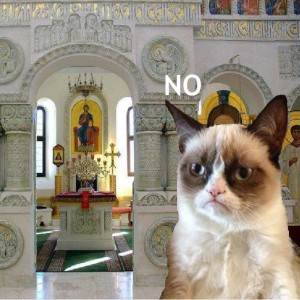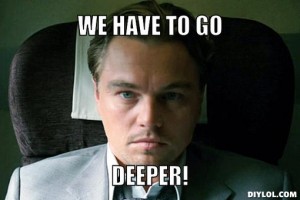“Nihilism stands at the door: whence comes this uncanniest of all guests?”
-Nietzsche (The Will to Power)
This puzzling and frightening question which marks the onset of the last of Nietzsche’s works requires an answer, and this answer explains much about ontotheology. As such it would appear that there are two different conceptions of nihilism at work in this quote, however, they are not completely unrelated.
Nihilism as History (or, The “god” of Ontotheology is Dead)
It is often overlooked that Nietzsche was first and foremost a historian. His schooling was in the field of philology (the study of language through written sources) with a focus on the classics. Thus, it is not far-fetched to consider Nietzsche’s work as largely a historical analysis of western philosophy beginning with its founders and culminating in those working around him. In this historical view of Nietzsche, we see his work as a critique of ontotheology.
Indeed, looking into the history of Western philosophy we can see precisely what Nietzsche was calling into question. The German metaphysicians, most notably Leibniz and continuing through Kant and Hegel, made an ever increasing connection between God and Being (or, more specifically, beings) to the point that many of them (Leibniz and Hegel especially) claim that God and nature (Being) are one and the same.
This positive and rationalistic view of God/Being was bound to collapse as the empirical worldview of the English enlightenment grew in popularity, and in general belief in both “Being” and “god” wavered.
Thus begins Nietzsche’s quest. Philosophizing with the hammer; smashing the two-headed idol of the “God/Being.” His destruction was however not the destruction of God, present in Western society, but rather the destruction of the imaginary idea that he really was “present in Western society.” This is why it is not one of the many godless men in the crowd (in Nietzsche’s story of the Madman in The Joyful Science) who proclaims “God is dead,” but rather it is the Madman himself, the one who begins by so desperately seeking God; the real God, not the god of ontotheology. The real God being that which is Divine and perfect, and wholly Other, as opposed to the conceptual schematic “god/Being” of ontotheology. It is this God-seeking madman who is the one that realizes the problem of ontotheology, and sees the nihilism which is present within ontotheology.
Nihilism as a Condition Within Ontotheology:
There is a more common sense of nihilism, that is, nihilism in the sense of one who absolutely denies the meaning and usefulness of everything. All is futile in this sort of nihilism, thus the nihilist dragon of John Gardner’s Grendel can provide Grendel with only one piece of advice, though he knows (being capable of seeing the future) that Grendel will not take his advice, “find some gold and sit on it.” There is nothing, and as such, you ought to do nothing but find some way of entertaining yourself (gold to sit on) as you wait for the coming annihilation of death.
This sort of nihilism is reflected time and again in the works of novelist Fyodor Dostoevsky and more currently, in the Coen brothers’ film “The Big Lebowski.” In these representations, nihilists are seen in a rather comical manner (typically being rather oafish and concerned only with money, which they regard (ironically) as their “right” or something “owed” to them). However, the tragic death of Donny in “The Big Lebowski” and the horrific end of Dostoevsky’s The Idiot stand as a testimony to the seriousness with which this problem of nihilism brings.
In this sort of nihilism, God is dead.
Not the mere constructs of God (ontotheology), but the real and true presence of the divine is completely lost. This is not however something inaugurated by Nietzsche’s proclamation in The Joyful Science, but rather, Nietzsche’s proclamation marked a reflection upon the history of Western thought.
Three Closing Remarks on the Nietzschean Thesis, or What It Means to Have Philosophized With the Hammer:
– God is indeed dead, and ontotheology was the coffin we put him in, not after his death, but prior, burying alive Him and leaving Him to die of suffocation from the confinement of being-amid-objects.
-That the “great and powerful place-holder” is no longer a viable theology does not mean that there should be no more theology. In fact it means that there should be better theology.
–Nihilism is not the denial of God, but rather the presupposition of the absence and unkowability of God.
Part three of a four part series.











